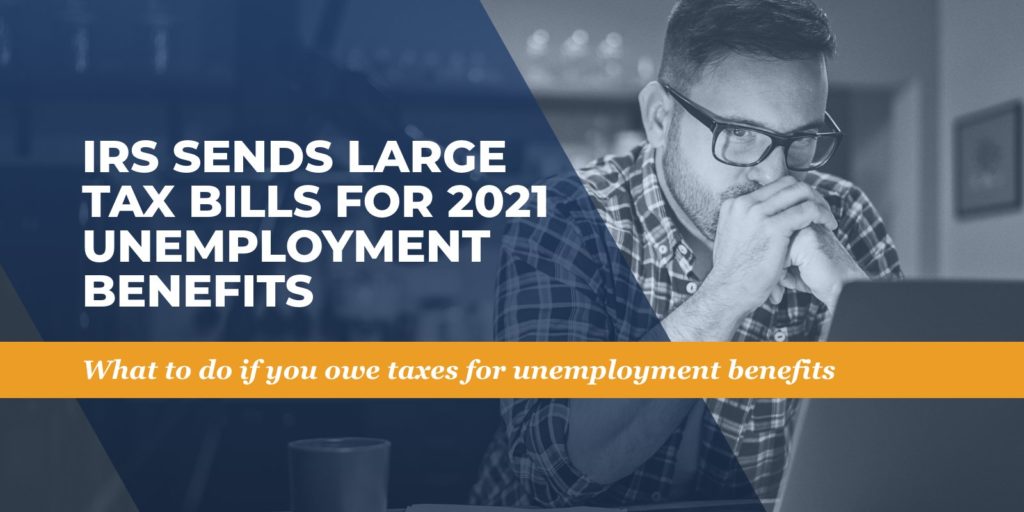
Due to the COVID-19 pandemic, millions of US workers lost their jobs. While some were able to return to work in 2021, approximately 25 million people received unemployment benefits and didn’t withhold taxes. The IRS is now looking to collect back taxes for the $325 billion in total benefits and mailed millions of large tax bills this season.
Withholding Unemployment Tax
Most states and the federal government consider unemployment benefits taxable income. You should withhold federal taxes on your unemployment in order to avoid a bill the following tax season.
In 2020, there was a tax break that allowed millions of Americans to owe a lesser amount of tax, or not owe tax at all. However, as the IRS has steadily made efforts to return to normal enforcement activity since 2021, there was no such tax break this year.
What happens if you don’t pay taxes on unemployment benefits?
As with any tax liability, you will receive a tax bill from the IRS via mail. Should you not reach out to the IRS or pay the bill by the end of the tax season, you could face enforcement consequences such as a levy or lien, accrue interest, and lose eligibility for a refund after filing a return.
What to do if you owe taxes for unemployment benefits
If you owe taxes on your unemployment benefits and can’t afford to pay it back in full, you have a couple of options. The first option, if your tax bill isn’t too high by your means, you can contact the IRS to set up a payment plan. This option allows you to negotiate how much you will pay monthly until the bill is paid.
Should you find that your liability is too high for you to pay back or you’re facing hardship that doesn’t allow you to afford your payment options, consider seeking professional assistance such as Optima Tax Relief.
At Optima, we assist clients who owe state and federal taxes, including individual, joint filers, and business filers. Give us a call at (800) 536-0734 for a free consultation today.
